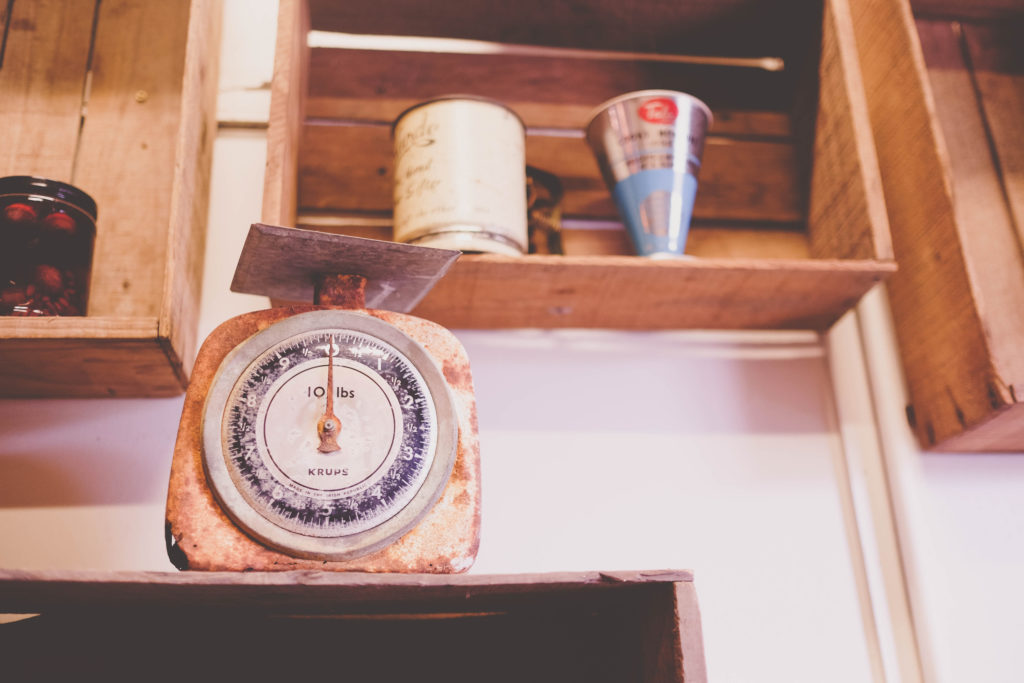Counting Calories … well THAT doesn’t work!
Who’s ready to rid themselves of a widely held, very accepted health/dietary practice that’s …. well, a total waste of time.
Most conventional wisdom on the subject of counting calories recommends consuming somewhere between 1200-1500 calories per day if you wish to reduce body weight by one pound per week if you’re a woman. And the hoo-ha goes further to suggest that the average woman needs about 2000 calories a day to maintain present body weight (2500 calories if you’re the male of the species).

OK, I gotta shake the rust from my brain cells to regurgitate a better than a vague a dim memory of the science behind this stuff. That’s how long it’s been since I counted calories! …. hold please 😀
A calorie is a unit of measure of energy, or more pointedly, the amount of heat needed to increase the temperature of one gram of water by one degree Celsius. And you should know, the word we commonly use, ‘calorie,’ is actually a kilocalorie. In which case, we are talking about food calories, also known as kilocalories, and that is a unit of measure of energy which marks the amount of heat needed to raise one kilogram of water (that’s approx. 35 ounces – more than a quart – for you Americans) by one degree Celsius (about 1.8 degrees Fahrenheit – many thanks to the commenter with the correction on the number of degrees). Are you confused yet? And how, on God’s green earth, does this relate to good nutrition? Just know this, when you’re counting food calories, reading all those food labels, you’re actually counting in kilocalories. What the unit of measure attempts to capture is an energy measurement (heat) contained in the food you’re eating. Food is obviously further broken into three macronutrient categories which are measured in … you guessed it! Calories. It goes like this: protein (4 calories per gram), carbohydrates (4 calories per gram; all of which are sugars) and fats (9 calories per gram). Bodies are about 75% water. In essence, you’re supposedly looking at a measurement by which to keep the body warm. And unless you’re a reptile or dead, you do need to keep your body warm.

And here’s where the whole concept of counting calories turns into a dog that doesn’t hunt in my world: the energy measure (number of calories) in food is assigned based literally upon burning a food item in proximity to water, and recording the temperature change of the water after the food is completely burned. This in no way establishes any food value (nutrition) whatsoever as it is intrinsically used by a human body. In theory, we could burn down a house in proximity to water, record the temperature change of the water once the house was turned to a cinder, and determine how many people we could feed and for how long. Would any of you like a chunk of drywall, PVC, pine, brick, mortar or shingles on your dinner plate? And yes, what I’m hoping you take away from that rant is: a.) using this rationale, everything on the planet could be measured in food calories; b.) just because something has countable calories, doesn’t mean it holds valuable nutrition; c.) using calorie counting to maintain body weight will only keep one on a dieting treadmill; and d.) I’m inviting everyone off of that treadmill.
Another major hole in the theory: there is nothing average about a body. The number of calories a body actually needs should be determined by the lean body mass (not to be confused with actual body weight), the state of the metabolic system, and daily activity level. As with all things in nature, we don’t all metabolize at the same rate. Which can beg some good questions we’ll get to in a bit. A petite woman who is 5 feet tall, and in relative decent condition will need a very different caloric intake than a more thickly built woman who is 6 feet tall and in relative decent condition. Same holds for men. And if you factor in activity level, the number of calories needed to keep that body fueled enough for basic metabolic function varies greatly. I guarantee you, someone who does manual labor every day needs more food than another with a desk job.

Here’s my favorite part about calorie counting to lose weight: It’s not a good, long term practice. 100%, yes 100% of the people I’ve worked with whose aim was losing weight and utilized reduced caloric intake, did NOT lose weight over time. Here’s why: generally, after 4-12 weeks, the body, in its infinite wisdom, slows the metabolism to match caloric intake. By reducing calories for a long enough period of time, the body moves into ‘starvation mode’; in other words, it’s moving into a low energy mode for the lack of preferred food energy needed to sustain basic metabolic function. The 100% I mention above began to lose weight once food intake was well matched with lean body mass and activity level. And I assure you, the caloric intake was well above 1200-1500 calories per day. If you want to lose a walloping 1 pound/week for a short while, than by all means, count calories. If you want to consistently lose weight over a period of time (which is the smart way to go) or have your body naturally maintain optimal weight, then you’ll need a better trick to get the job done.
Another big fallacy: Caloric intake correlates to body weight. Once the metabolism slows, you can reduce calories all you like, and taking off pounds will be like extracting blood from a rock. Another very good item to examine if your metabolism in not running nice and warm, is any evidence that the immune system is overtaxed (add’l info on immune system function is here). Tired immune systems do not have robust metabolism; meaning: it’ll be hard to lose weight. A very good measure of how robust your metabolism is, is reflected by ones appetite or one’s need of stimulants. Good metabolizers get really hungry when not fed. If you’re making it until noon before you’re hungry, I’m going to bet your metabolism is not running as it was designed. If you require several cups of coffee to get through your day, ditto. Your goal in this case should not be losing weight, but solving the issue confronting your immune system.
If you must count something in your daily food practice, start counting the number of grams of protein you consume. Protein feeds our lean body mass. And most bodies require consumption of enough protein for one’s particular lean body mass and activity level. Generally speaking, active people need about 1 gram of protein for every pound of lean body mass to maintain their present body weight. Less active, or inactive people should multiply their lean body mass weight by a factor of .65 -.75. Some bodies will actually function on smaller volumes of protein. Those people are generally blood type A.

And consider this: if you’re not eating enough protein for your body every day, your body will use it’s own muscle tissue as a protein source to support body functions that require the use of protein. That means: you will lose muscle mass as your body turns its own muscle into food to support daily metabolic function. And stating the horribly obvious, under-eating for your specific body’s protein needs, is a fast track to creating a weak body. This is why counting grams of protein is more productive and functional than counting calories.
There are approximately 7 grams of protein per ounce of any flesh (an average size large egg is about 7 gram of protein). If you’re not a flesh eater, look into sprouting grains, bean, seeds and legumes. While these foods most times are not regarded as protein rich, once sprouted, they absolutely team with completely bio-available amino acids, which are the building blocks of protein. And you guessed it, if you start with the simpler building blocks, the body’s job of using those nutrients is actually easier.
Properly sprouted foods are some of the most nutrient rich foods on the planet. Those curious about sprouting can check this article for a good how-to. NOTE: the very same process is also used to sprout beans, legumes, seeds, nuts. Also, if you’re interested in a sprouting lid, don’t waste time with the options on this page. Get these instead.
So, when reading a generalized daily caloric consumption suggestion …. well, just pitch THAT suggestion right out the window if your desire is to lose weight, maintain optimal weight and enjoy greater health.
